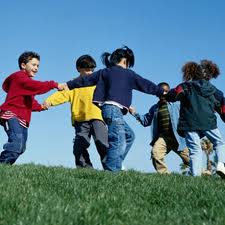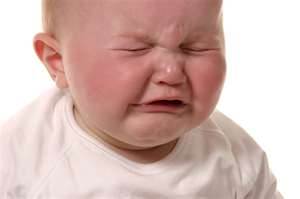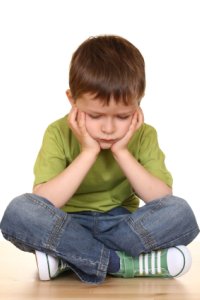Asperger Syndrome
What Are It's Characteristics?

Asperger syndrome (AS) is a neurobiological disorder that is part of a group of conditions called autism spectrum disorders.
The disorder was named after Hans Asperger, a Viennese pediatrician who, in 1944, studied and described children ( mostly boys) in his practice who lacked nonverbal communication skills, demonstrated limited empathy with their peers, and were physically clumsy. Asperger noticed that although these boys had normal intelligence and language development, they had severely impaired social skills, were unable to communicate effectively with others, and had poor coordination.
In 1994, it was standardized as a diagnosis, but there are many remaining questions to be answered about the aspects of the disorder. One question being asked is whether it is distinct from high-functioning autism. And because of this, its prevalence is not firmly established. It has been proposed that the diagnosis of Asperger Syndrome be eliminated, to be replaced by a diagnosis of autism spectrum disorder on a severity scale.
Other characteristics of AS are obsessions, odd speech patterns, repetitive behavior and speech, sensitivity to sensory stimuli ( for example, they may be bothered by light, sounds, fabrics or food tastes and textures).

My Story as a Grandparent
When my husband and I were in the process of changing our lifestyle (some people call it downsizing), our son asked us to live with him and his family for a while. Jeff's family consists of Joy, his girlfriend, and their three year old son, Allen. The invitation came as a gift; time to decide where we wanted to retire and the opportunity to spend quality time with our grandson.
The move went well, but the adjustments were difficult. Little Allen would not have anything to do with us. We had visited on and off for the first years of his life and he always seemed happy to see us. But now it was different. His behavior became explosive and unpredictable. He had episodes where he deliberately wet his pants or just peed on the floor. He refused to brush his teeth, eat, or go to bed. He also became physical with everyone around him.
We had seen odd behavior from Allen before, but we thought that he was just picking up some of his mothers' nuances. She showed signs of obsessive compulsive behavior. His father was beside himself with confusion and displayed anger that could only make things worse. When parents are faced with children who have learning difficulties, their first impulse is to think that they are bad parents. That is not the case. Parents are not to blame. They only have to learn a conscious way to help their child.
I started researching his behavior and came up with a possible explanation: asperger syndrome. I printed up a sheet of 25 characteristics of an asperger child and Allen displayed all of them. His parents refused to admit that he was autistic and we let it go at that. We deliberated before we gave him the list, knowing that we were jeopardizing our relationship with them. Sometimes, you just have to take a chance.
Missing out a stressful and unhappy stage for Allen and his parents, I now jump to six months later. Allen has been evaluated, and has a special worker at his pre-school. He looks forward to going to school and he has improved immensely since going. This is just the beginning of a life of understanding and training for his parents and all who are involved with his caregiving.
The exact cause of AS is unknown, although research supports the likelihood of a genetic basis. Many variables must be taken into account, though and at this point there is limited data to support any theory. There is a large body of people who are studying the effects of vaccinations on children starting as early as three months old ( when a baby has a natural immunity). We need to become informed as the pharmaceutical industry is large and powerful and focused more on the dollar than our health care. But that is another subject for another time.

Aspergers and Family Behavior Patterns
In the process of researching and learning about aspergers, I have met a lot of people with the same challenges. One lady who is now a good friend of mine, is a grandmother who also has a grandson with aspergers. The family is going through the process of having their son tested to determine how best to deal with the little boy as he approaches school age. Here is her story, and I thank her for allowing me to use it:
“ Now that I have become involved with helping my son and his wife deal with their child’s aspergers, I am getting to know my daughter in law better. It prompts me to ask this question: How do family behavior patterns affect a condition like autism? I see now that Julie shows signs of aspergers herself. She has many phobias and obsessive compulsive behaviors. She has avoided me and our family from the day we met. We seldom see her at family gatherings. She spends a lot of time on the computer finding bargains for things that they do no need and they do a lot of shopping for what I call ‘stuff’. She hides food and is at a loss when our grandson is in school. She sits for long periods of time and pulls at her hair. She spends a good amount of time in her bedroom away from us and when our grandson is home, she keeps him upstairs as often as she can. I would say that she too, has a form of autism."
My question here, also, is, how much of her grandsons' behavior patterns are his AS and how much is learned from his mother. They have been inseparable since his birth. She has spent his every waking minute with him.
Most of us know that it is not what we say to our children so much as 'how we are' with them, and with others, that teaches them about life. This theory may give others food for thought.
I would like to mention that Autism is not a hopeless thing. Knowledge takes away the fear. It is a different way of thinking for some people but the brain can be taught new things. I have seen a remarkable difference in our grandson in the last month.
Now, a new challenge for this family is admitting that the mother may have some degree of autism. It seems that autism is hereditary and can be passed directly on to our children.
I believe that a shift in attitudes should be advocated towards learning disabilities. They should be viewed as a difference rather than a disability. The human brain is powerful and since it’s considered the ‘final frontier’, we still have so much to look forward to.

Visit Positive Parenting
Return from Aspergers to Family Behavior Patterns
Return from Aspergers to Home Page





